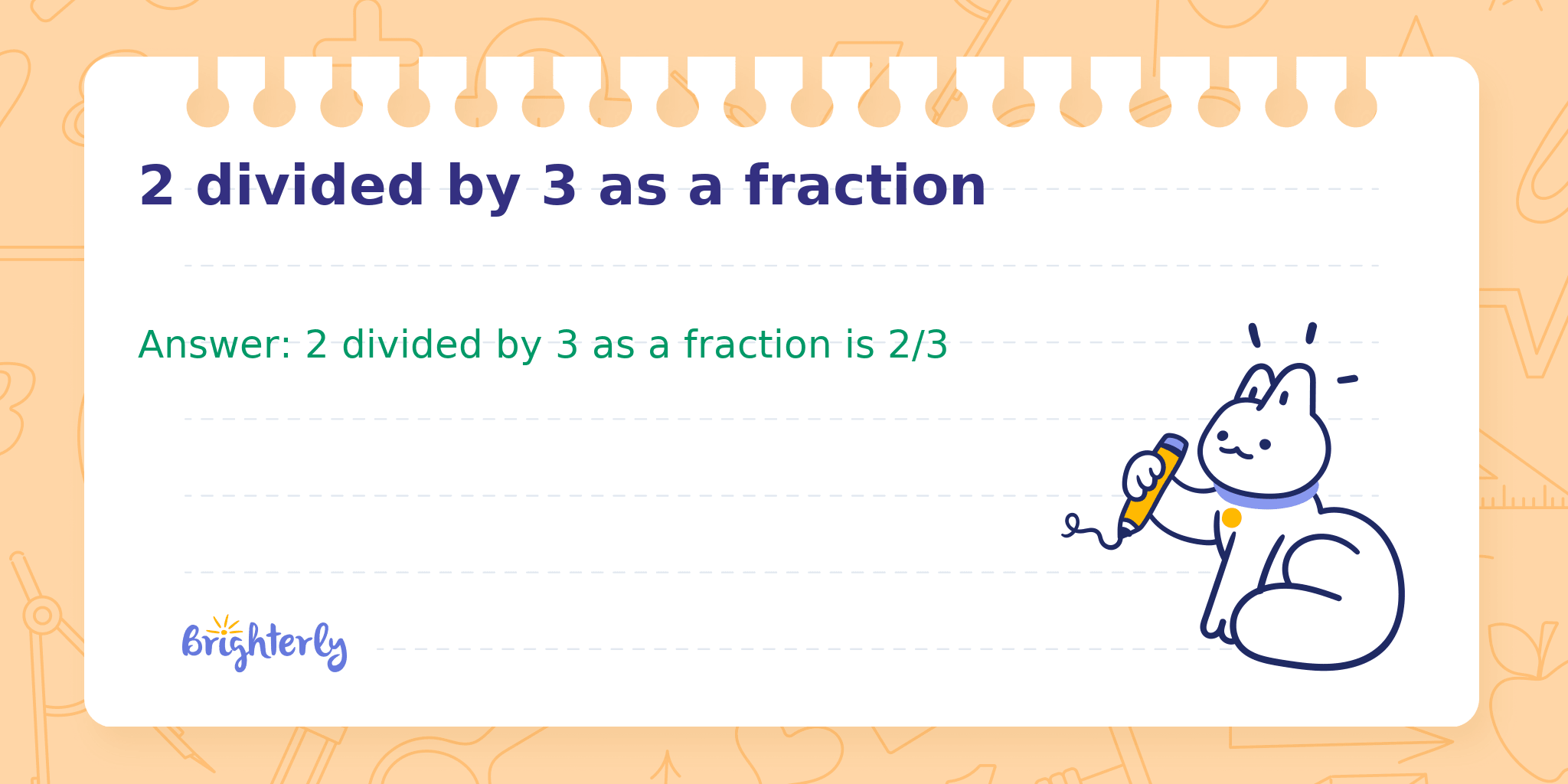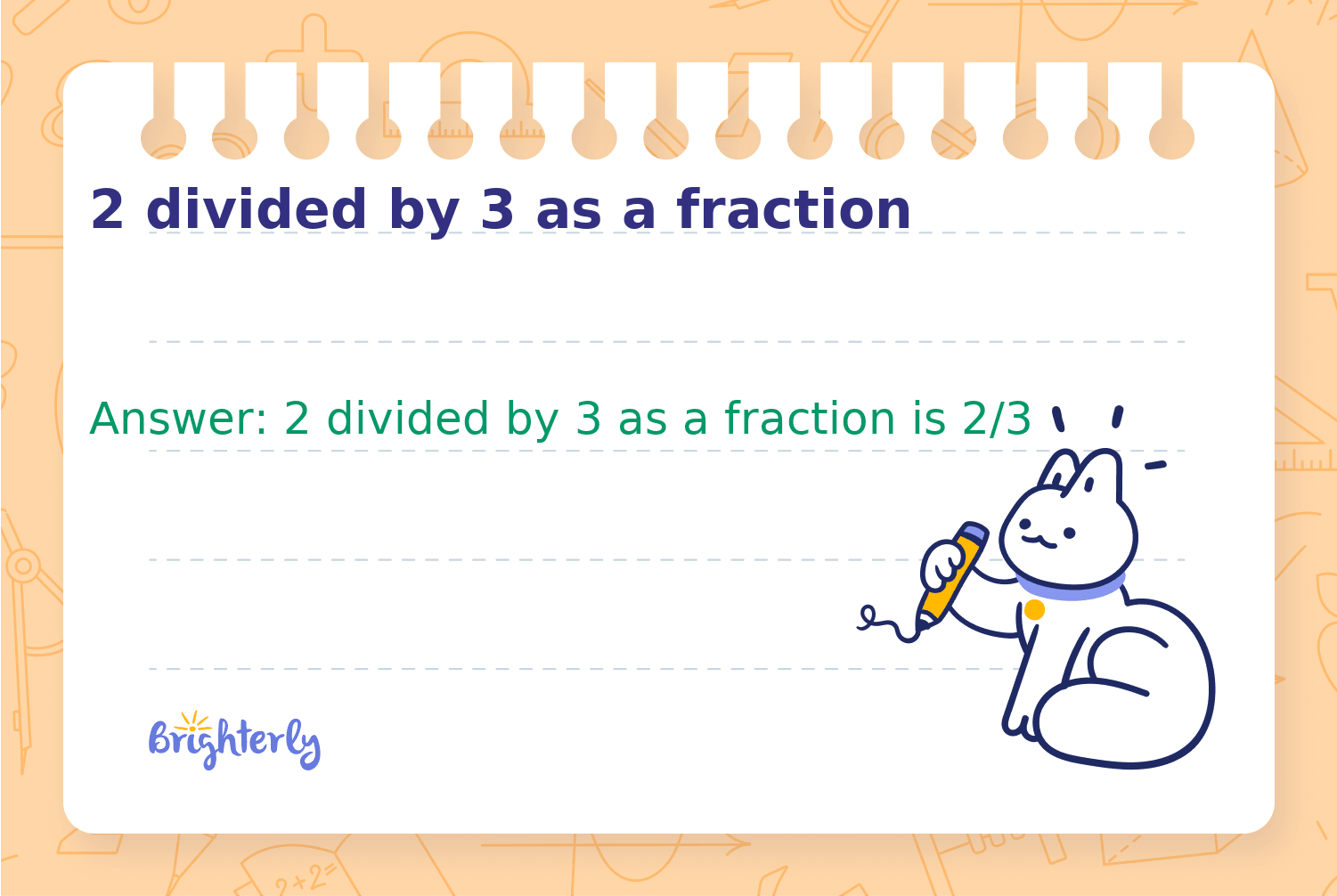
Reviewed by Phoebe Belza-Barrientos
2 divided by 3 as a fraction
Answer: 2 divided by 3 as a fraction is 2/3
Dividing 2 by 3 can be represented using a fraction, which is a way to show the division of two numbers. Fractions express how many parts of a whole are being considered. Here, '2 divided by 3' simply means how much each part would have if you split 2 into 3 equal sections.
Methods
Math Tutor Explanation Using Fraction Representation Method
We use the format 'numerator over denominator' for a fraction, where the numerator is the number being divided and the denominator is the number you are dividing by.
Step 1: Step 1: Write the dividend (2) as the numerator
Step 2: Step 2: Write the divisor (3) as the denominator
Math Tutor Explanation Using Long Division Method
To see why 2 divided by 3 is 2/3, you can perform the division directly using long division.
Step 1: Step 1: Set up the division 2 ÷ 3
Step 2: Step 2: Recognize that 2 cannot be divided evenly by 3, so it is represented as the fraction 2/3
Step 1:
Step 2:
Math Tutor suggests: Practice More Fraction and Division Conversions
If you want more practice expressing division as fractions or similar fraction concepts, try these related exercises.
FAQ on Fractions from Division
Is 2 divided by 3 always written as 2/3?
Yes, 2 divided by 3 is normally expressed as the fraction 2/3.
Can 2/3 be written as a decimal?
Yes, 2/3 is approximately 0.6667 as a decimal.
What does the numerator and denominator mean?
The numerator is the top number of a fraction and shows the number of parts; the denominator is the bottom number and shows how many equal parts the whole is divided into.
Can this fraction be simplified?
No, 2/3 is already in its simplest form.
How do you convert other division problems to fractions?
You write the numerator as the dividend (number being divided) and the denominator as the divisor (number dividing by).


